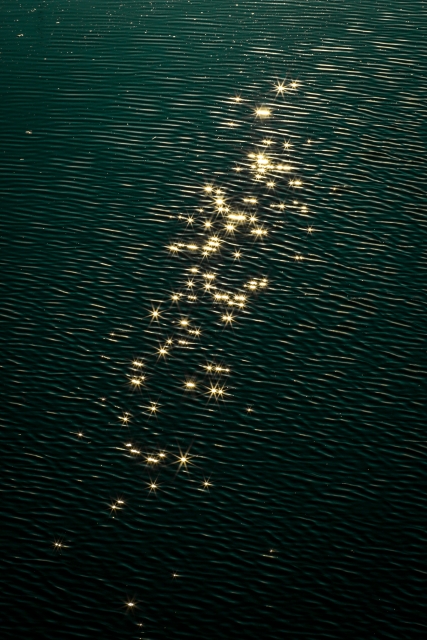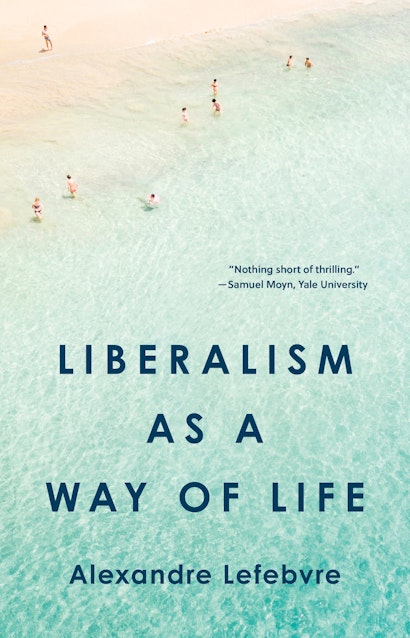Opponents of an ideology often understand it better than its supporters. Edmund Burke, for example, knew exactly where the ideals of the French philosophes would lead them. Karl Marx grasped the dynamism of capitalism better than the bourgeoisie ever has. The same is true of liberalism today. Conservative critics see much more clearly what liberalism has become than self-professed liberals.
Let me explain with a parable that’s half joke, half lesson. It’s from David Foster Wallace’s famous commencement address at Kenyon College in 2005: “There are two young fish swimming along and they happen to meet an older fish swimming the other way, who nods at them and says, ‘Morning, boys. How’s the water?’ And the two young fish swim on for a bit, and then eventually one of them looks at the other and goes, ‘What the hell is water?’”
The moral of the story is that the most obvious and important realities can sometimes be the hardest to think and talk about. This metaphor of water is useful when it comes to liberalism. It strikes me that its defenders are rather like the two young fish and conservative critics are like the older fish.
The dictionary definition of liberalism is a “social and political philosophy” based on “support for or advocacy of individual rights, civil liberties, and reform tending towards individual freedom, democracy, or social equality.” The thing to notice is that everything in this definition belongs to the realm of law and politics, broadly understood. When we talk about liberalism, it seems that we’re in the land of constitutions, rights, policy, and voting.
People who identify as liberal today think of it along these lines. Academics, journalists, politicians, and officials represent (and when pressed, defend) liberalism by listing its main social and political institutions such as individual rights, rule of law, separation of powers, judicial review, free and fair elections, progressive taxation, and open markets. None of this is incorrect. These are the core institutions of liberalism. Yet framed this way, liberalism refers to things in the water instead of the water itself. It refers to coral, shells, whales, and kelp, as opposed to the water and its currents.
Conservative critics of liberalism see it differently, closer to the older fish, assuming he loathed the water quality. These critics conceive of liberalism only secondarily in terms of legal and political institutions. Much more significant is liberalism as a worldview and value system—one that in recent decades has consolidated its power everywhere in Western societies. On this account, liberalism has infiltrated not just the usual suspects of news media, pop culture, public school, and universities, but also fundamental aspects of everyday existence, such as sexuality, child-rearing, friendship, and professional life. “Liberalism,” states Patrick Deneen in his influential Why Liberalism Failed (2018), “is thus not merely, as is often portrayed, a narrowly political project of constitutional government and juridical defense of rights. Rather, it seeks to transform all of human life and the world.”
Say what you like about attacks of this kind, but they’re clearly about the water. Liberal principles, values, and sensibilities have become so pervasive as to be mistaken for common sense or even human nature. To recast the joke, it would go, “Morning, boys,” sneers an older fish, “How’s the liberalism?” And the two young liberals swim on for a bit, sipping their koi lattes, and eventually one of them looks over at the other and goes, ‘What the hell is liberalism?’”
You may object to conservatives who denounce liberalism as a politically noxious and personally debilitating worldview. But their assessment of its scope is correct. Liberal ideals and sensibilities are omnipresent in the broad background culture of Western democratic societies. The older fish is onto something that, ironically, more deeply and accurately captures how liberalism is lived and experienced by liberals today.
Obviously, modern societies are plural and include all manner of worldviews and ways of living that are not reducible to liberalism or actively illiberal (in the sense of opposing liberal tenets). But it is a big mistake to overlook or underplay how ubiquitous liberal values are in the mainstream culture of Western liberal democracies. Not all popular culture is united in support of liberalism. Much of it is intended to parody and challenge liberal dogmas. But that only reinforces the fact that liberalism has entrenched itself as the central point of reference.
Care for some examples of where liberalism can be found? Here are some, selected almost at random from the mainstream culture that almost all of us navigate on a daily basis. Liberalism is there when we pick up a novel by Sally Rooney that dissects the power dynamics of sex and class; when we read a satire by Kevin Kwan about the clashes between individualism and tradition; when we watch comedians like Kumail Nanjiani and Dave Chappelle skewer identity politics; when we binge television shows like The Office and Brooklyn Nine-Nine that reimagine the workplace as a setting for self-realization; when we consume eat-the-rich entertainments such as White Lotus and Succession; when we listen to Beyoncé reclaim her power on Lemonade; when we see Disney princesses (from Ariel to Belle, Jasmine, Pocahontas, Mulan, Tiana, Rapunzel, Merida, Elsa and Anna, Moana, and Raya) strive to learn and become who they were meant to be; when we gift Good Night Stories for Rebel Girls to a niece or daughter as modern-day lives of the saints; when we play video games like Grand Theft Auto V and The Last of Us Part II, the violence of which is matched only by their perspectivism; when we consult human resource codes of conduct about respectful workplace relations; when we visit pornhub.com and all the top videos toy with the notion of consent; and even when we tune into reality shows like The Bachelor, Love Is Blind, Love on the Spectrum, and Indian Matchmaking, all of which turn romance into a buyer’s market.
No item on this list is explicitly about liberalism, yet none would be slightly comprehensible without it. Just pick the one you’re most familiar with and try to imagine how you would summarize it to someone who didn’t understand (as opposed to someone who agreed or disagreed with) the principle that everyone is free to lead the kind of life they want so long as it does not interfere with the ability of others to do the same (to name only one signature liberal idea). It would be like sending a code without the cipher on the receiving end. That’s what it means for liberalism to be the water of our times. Written into our foundational institutions, and underlying so much of the culture we daily live and breathe, liberalism has seeped into our pores to profoundly and personally shape who we are.
How deeply does your liberalism go? Only you can say. But consider this: as of January 2024, 28% of the US population is not religious and these “nones” are the fastest-growing group of religious affiliation, or rather, non-affiliation. Yet far from living in a moral vacuum, all of us—churched and unchurched—inhabit a culture where ideals of freedom, fairness, tolerance, reciprocity, and irony follow us from cradle to grave. That’s a liberal package and conservatives know it. Liberals should too, for liberalism may well be the source of who they are deep down. From the family to the workplace, friendship to enmity, romance to parenting, humor to outrage, and everything in between, many of us are liberals all the way down.
Liberals get jittery around the word soul. It’s too metaphysical, too heavy, uncool and unironic. But we should own it. Liberalism is as serious and storied a moral doctrine as any religion. At a time when this tradition is threatened around the world, liberals need to realize the deeply personal—indeed, existential—stakes of the moment. Liberalism is, for now at any rate, the culture of our times and I encourage you to hop in. The water is just fine.
This essay is an adapted excerpt from chapter 1 of Liberalism as a Way of Life.
Alexandre Lefebvre is professor of politics and philosophy at the University of Sydney. His books include Human Rights as a Way of Life.

